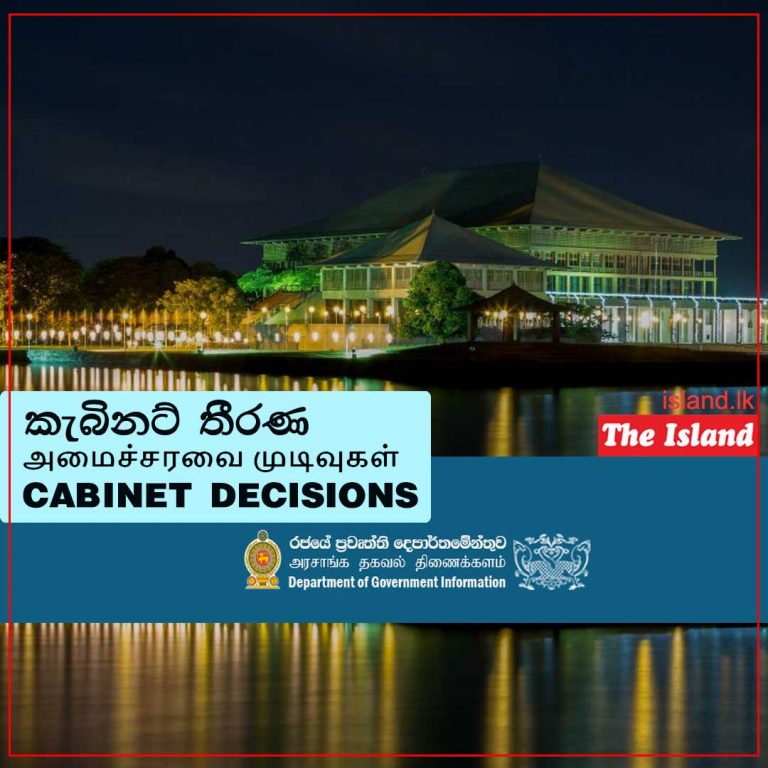Business
PA calls for urgent facilitation of crop diversification after sharp price reductions in tea and rubber

The Planter’ Association of Ceylon (PA) renewed calls for urgent action from policymakers to greenlight diversification into more lucrative crops like oil palm, in the wake of a sharp reduction in prices of tea and rubber over the first half of 2023 (1H23).
Following on record prices in 2022, when tea moved from Rs. 704.7 per kilogram up to Rs. 1,245.2 per kg in June, and up to an all-time high of Rs. 1,599.5 per kg by September, prices have been on a steady decline in 2023.
Starting from Rs. 1,466 per kg in January 2022, average prices have since reduced to just Rs. 974.4 per kg by June 2023. This amounts to a 24.4% Year-on-Year (YoY) reduction, and a drastic 40.3% reduction between Jan-June 2023.
National Tea Price Averages
Rubber prices too experienced significant volatility throughout 2022, moving from Rs. 461 per kg of Grade 1 Ribbed Smoked Sheets (RSS1) up to an annual high of Rs. 800 in June 2023, before collapsing back to Rs. 472.7 per kg in January 2023. While rubber prices have appreciated marginally to Rs. 536.3 per kg in June 2023, average prices of rubber for 1H23 were 21.4% less than the corresponding period of 2022.
“Sri Lanka’s plantation industry is in urgent need of a realignment. The price dynamics over the past 6 months show strong signs of a continuing downturn across both tea and rubber. Tea prices have been impacted by increasing production in competitor nations, while rubber prices affected by continuing supply-demand mismatches in the wake of the COVID pandemic. Demand for finished rubber products while showing marginal improvemnts, has been relatively stagnant compared to the past 3 years. Sri Lanka’s low productivity is also eroding our ability to compete with larger regional producers,
“While we maintain that there must always be a place for Sri Lankan tea and rubber, we have to acknowledge that securing the future of our nation’s plantation industry requires extensive crop diversification. We can no longer limit ourselves to just two main crops. Already significant investments are being channeled across the RPC sector into an array of crops – from a wide range of fruit cultivation to coffee and even several varieties of berries. However, we note with disappointment that there has still been little to no progress on expanding of sustainable oil palm cultivation,” PA Chairman Senaka Alawattegama noted.
Business
Cabinet nod for the removal of Cess tax imposed on imported good

The Cabinet of Ministers has approved the joint resolution furnished by the President in his capacity as the Minister of Finance, Planning, and Economic Development and the Minister of Industries and Entrepreneurship Development to phase the removal of Cess tax imposed on imported goods under 2,634 combined classification codes identified over 4 years [from 2026 to 2029\.
Business
War in Middle East sends shockwaves through Sri Lanka’s export sector

Sri Lanka’s export sector is bracing for fresh turbulence as the escalating conflict involving Iran and parts of the Middle East begins to send shockwaves through global trade, shipping and energy markets.
Though geographically distant from the conflict zone, Sri Lanka’s exporters are far from insulated. Industry leaders warn that higher freight costs, rising oil prices and increased trade risks could erode margins and disrupt key markets if hostilities intensify.
President of the National Chamber of Exporters of Sri Lanka, Indhra Kaushal Rajapaksa told The Island Financial Review that the situation is being closely monitored, as the export community is already feeling the early tremors of global instability.
“Sri Lanka may not be directly involved in the conflict, but we are deeply integrated into global supply chains. Any disruption in the Middle East immediately translates into higher costs and operational uncertainty for our exporters,” Rajapaksa said.
A major concern is the vulnerability of critical maritime corridors such as the Strait of Hormuz and the Red Sea, through which a significant share of global trade and oil shipments pass. Shipping lines have begun rerouting vessels and imposing emergency risk surcharges amid mounting security threats, while insurers are reassessing risk exposure in the region.
“Freight costs had only recently begun stabilising after the pandemic-era disruptions. Now, with vessels avoiding high-risk zones and insurers raising premiums, exporters are once again facing unpredictable shipping expenses,” he noted.
For time-sensitive exports such as apparel and perishables, delays could undermine Sri Lanka’s hard-earned reputation for reliability in competitive markets.
Exporters fear that prolonged instability could trigger sustained freight rate hikes similar to those witnessed during previous global disruptions.
The conflict has also driven global oil prices upward on fears of supply disruptions and shipping bottlenecks. Given that the Middle East accounts for a substantial share of global crude oil output, even perceived threats to supply have immediate price implications.
For Sri Lankan exporters, higher oil prices translate directly into increased fuel, electricity and transportation costs. Manufacturing sectors such as apparel, rubber products, plastics and food processing are particularly vulnerable, as energy forms a core input cost across operations.
“Energy is a fundamental cost component in nearly all export industries. When global oil prices rise, the impact cascades through logistics, production and even raw material pricing,” Rajapaksa explained, warning that sustained high energy costs could squeeze already thin margins.
Beyond cost pressures, the Middle East remains a crucial destination for Sri Lankan exports, especially tea and food products. Around 25 percent of Sri Lanka’s tea exports are shipped to Middle Eastern markets, making the region strategically important for the plantation sector.
“The Middle East is not just a transit route; it is a major market. If economic activity slows in those countries, or if banking and payment channels become complicated due to the conflict, our exporters will face direct consequences,” he cautioned.
War conditions also elevate trade finance and insurance risks. Cargo insurance premiums are climbing, and banks may adopt a more cautious stance toward trade credit involving affected regions.
Exporters could face payment delays, tighter financing conditions and higher compliance requirements, raising the overall cost and complexity of doing business.
This comes at a sensitive time for Sri Lanka’s economy, which is navigating recovery. Higher global oil prices would widen the import bill, potentially exerting pressure on the rupee and fuelling domestic inflation. While currency depreciation can sometimes enhance export competitiveness, rising input costs may offset any exchange rate advantage.
Despite the challenges, he pointed to potential opportunities if Sri Lanka responds strategically. As global buyers seek to diversify supply chains away from unstable regions, Sri Lanka could position itself as a reliable sourcing hub for apparel, rubber-based products, processed foods and value-added agricultural goods.
“In every global disruption there are risks, but there are also opportunities. If Sri Lanka strengthens trade facilitation, improves logistics efficiency and ensures policy consistency, we can attract buyers looking for stable alternatives,” he said.
He stressed that resilience and preparedness would be critical in the weeks ahead, as exporters closely watch developments in the Middle East and global energy markets, aware that distant conflicts can swiftly reshape local economic realities.
By Ifham Nizam
Business
Ranil says Iran leadership eviction methodology unacceptable

Ranil Wickremesinghe on Monday criticised the methodology adopted by U.S. President Donald Trump in dealing with Iran, stating that externally driven attempts to dismantle the leadership of another sovereign nation are unacceptable and fraught with dangerous global consequences.
Addressing a group of social media activists at the United National Party (UNP) office on Flower Road, Colombo, Wickremesinghe said that while geopolitical tensions in the Middle East were deepening, the principle of state sovereignty must not be undermined under any circumstances.
Referring to recent escalations between Washington and Tehran and remarks attributed to President Trump concerning Iran’s Supreme Leader Ali Khamenei, Wickremesinghe said:
“President Trump has alleged that Khamenei’s government was responsible for the deaths of hundreds of people in Iran and that action was taken to remove that leadership. However, the methodology used for dismantling the leadership of another administration in such a manner is not acceptable.”
He added that President Trump appeared to be seeking to engage in global affairs “as he likes,” warning that such actions carried far-reaching implications beyond the immediate theatre of conflict.
“What has happened following the Iran strikes is an issue with deep implications,” Wickremesinghe said, noting that the balance of power in sensitive regions must not be disturbed recklessly. Drawing a regional parallel, he observed that control of strategic sea lanes such as the Indian Ocean could not be handed over to a single dominant power.
On the economic fallout, Wickremesinghe sought to allay fears of a severe energy crisis in Sri Lanka. “Amid supply constraints because of Iran, it won’t be a big issue as other oil-producing countries will offer sufficient supplies,” he said. However, he expressed concern over the government’s overall economic management. “I don’t see this ballooning into a significant issue, but my concern is whether the government can manage the economy as it is.”
As he made these comments, the Sri Lankan government has yet to formally articulate its position on the escalating Middle East crisis, and Foreign Minister Vijitha Herath has not publicly clarified the government’s official stance.
Responding to a question on whether he was prepared to assume responsibility for governance again, Wickremesinghe said the present administration must be allowed to discharge its mandate. “Let the government go ahead and address the issues. We shouldn’t let them escape the responsibility they have taken upon themselves,” he said.
Commenting on the 90-day detention of former defence intelligence chief Suresh Saleh in connection with investigations into the 2019 Easter Sunday attacks, Wickremesinghe described the matter as a “closed case.” He pointed out that foreign intelligence agencies, including the Federal Bureau of Investigation (FBI), had already submitted their findings.
“Foreign intelligence bodies such as the FBI have submitted their reports and conclusions. The government’s probe direction is not in line with that. Pursuing the case afresh in this manner is a waste of public money,” he said.
Wickremesinghe’s remarks are particularly noteworthy given the long-standing perception of the UNP as broadly aligned with Western policy positions. During President Trump’s first term, when the U.S. administration threatened to suspend funding to the World Health Organization (WHO) at the height of the COVID-19 pandemic, Wickremesinghe publicly appealed to President Trump to reconsider this move , stating that developing countries such as Sri Lanka would face severe repercussions if global health funding were curtailed.
His latest comments therefore signal a clear defence of diplomatic norms and national sovereignty at a time of rising geopolitical volatility, while underscoring his view that global power rivalries must not override established principles of international conduct.
by Sanath Nanayakkare
-

 Features3 days ago
Features3 days agoBrilliant Navy officer no more
-

 Opinion6 days ago
Opinion6 days agoJamming and re-setting the world: What is the role of Donald Trump?
-

 Features6 days ago
Features6 days agoAn innocent bystander or a passive onlooker?
-

 Features7 days ago
Features7 days agoRatmalana Airport: The Truth, The Whole Truth, And Nothing But The Truth
-

 Opinion3 days ago
Opinion3 days agoSri Lanka – world’s worst facilities for cricket fans
-

 Business7 days ago
Business7 days agoIRCSL transforms Sri Lanka’s insurance industry with first-ever Centralized Insurance Data Repository
-

 Business6 days ago
Business6 days agoAn efficacious strategy to boost exports of Sri Lanka in medium term
-

 Features4 days ago
Features4 days agoOverseas visits to drum up foreign assistance for Sri Lanka

























